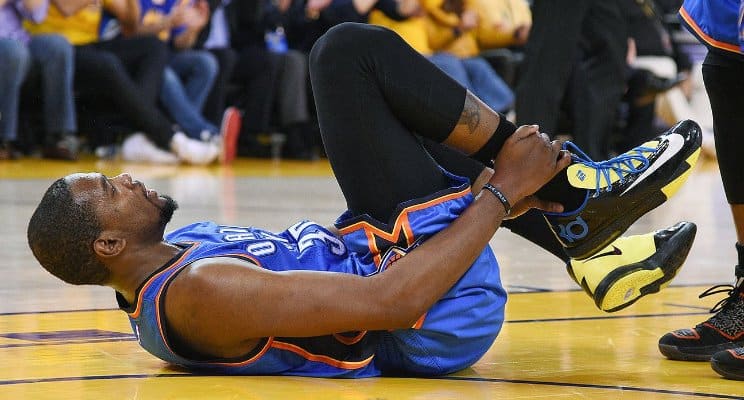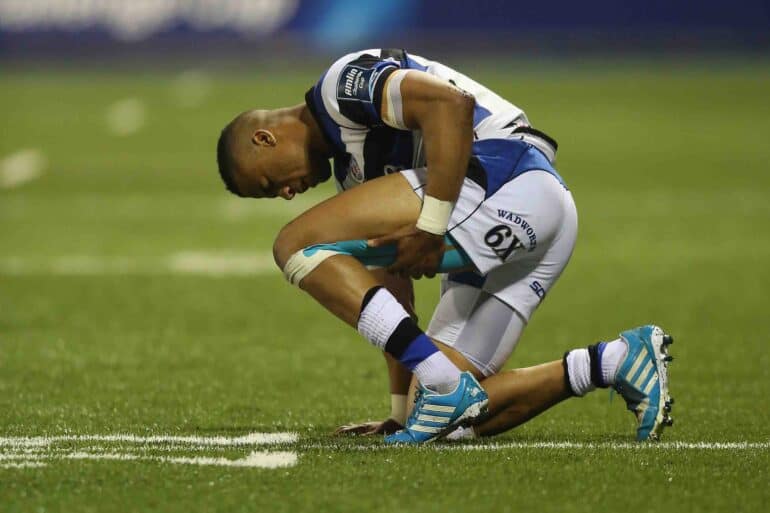Hello guys, it is me once again.
Today, I want to share some insight into the life of a professional athlete, INJURIES. As with every venture in the world, some form of risk is always present. The world of professional sports is no different. However, here risk appears in the form of injuries. One of the first things you learn as an aspiring professional is that injuries are an ever-present risk because your body constantly wears and tears through training and performance. Minding your body should be a top priority, but injuries can occur even in the greatest of care. I will be citing five of the most common injuries for athletes, especially for aspiring basketball players.
SPRAINS

A sprain occurs when a ligament, the fibre-based connective tissue that binds bones and joints to each other, is deformed due to overstretching past their elastic limit. Sprains are very common because our bones are constantly in movement during physical exercise when we create angles through running, change of direction, or in contact. Some of the most common sprains occur to ankles, knees, wrists, and fingers.
To avoid sprains, it is necessary to warm up before any physical activity. This activates the elastic tissue in ligaments and prepares them for the different movements you are about to engage in or the sudden changes in direction.
In case you have a sprain, you should that you RICE it.
R-rest
I-ice
C-compress
E-elevate.
STRAINS

These are injuries to your tendons. Tendons are collagen-based connective tissues that connect bones to muscles. Tendons are not very stretchy like ligaments, but they are flexible, resistant and damping, acting as force transmitters to the bones and shock absorbers. A strain occurs when a tendon stretches past its elastic limit. A strain is excruciating, occur mostly in the lower half of the body (unless you play sports that requires arm movement like disc throwing, baseball, weight lifting, etc.) and limits the use of a muscle. Some common strains occur in the groin, hamstring, and calf. Strains are very common injuries, and will happen at least a few times in an athlete’s career, but treat them with caution, else you might get a tear or tendon damage.
Again, the easiest way to avoid strains is to get your muscles warmed up before physical activity. However, when you have a strain, one of the most important things to do is rest the muscle. Most strains will heal on their own and can limit your mobility for a while, but the severe ones can cause swelling and can take up to months to heal completely.
TEARS

A tear occurs when either one of a ligament, tendon, or muscle cuts. The tear can be partial or complete. Some tears can be mild and require only rest to heal, while others need surgery, months to heal, and sometimes, rehabilitation. Common tears occur in the anterior cruciate ligament (ACL), medial collateral ligament (MCL), and the Achilles tendon. ACL tears and Achilles tears are amongst the most dreaded in sports, especially basketball, because they can take up to a year to fully heal. I once had a torn hamstring.
The most effective approach to tears is to prevent rather than cure, and that starts with the most underrated in sports training and prep, warming up.
FRACTURES

A fracture occurs when a bone splices. A fracture can be partial, complete, open, closed, stable, etc. There are different types of fractures, each one requiring different levels of care and treatment. In the case of transverse fractures that are stable, you may need only to set the bone, while in others, like an avulsion, segmented, or displaced fracture, you may need surgery and months of rehab.
BLOCKS

One thing we rarely consider, but that happens just as often, or even more than physical injuries, is psychological ones. Psychological health is vital, and key for athletes because drawing out the best in yourself requires an impeccable balance between mental health and peak physical condition.
Like how writers have writers’ block, athletes also have blocks, especially when their confidence takes a hit due to poor performance or results, the fear of making mistakes or failing, inadequate training, etc.
Most athletes do not recognise or even accept psychological blocks when they happen. One of the best ways to deal with and avoid blocks is to train the mind. To get you started, I compiled this list of must-reads.